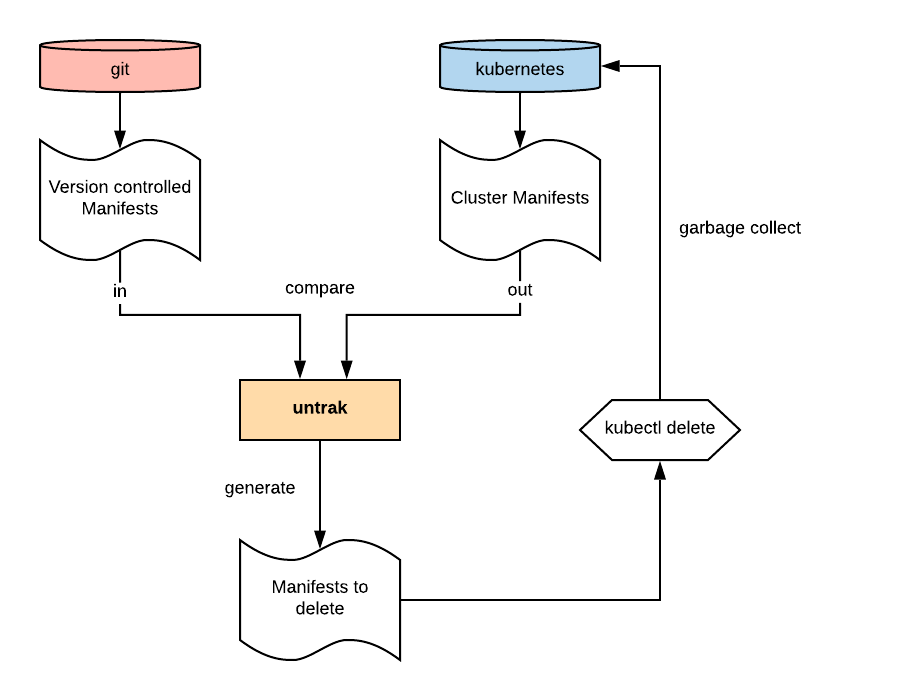yanc0 / Untrak
Labels
Untrak
Find untracked resources in Kubernetes cluster, garbage collect them.
Why?
When you use kubectl apply, kustomize build or helm template for injecting manifests through you CI/CD pipeline, kubernetes doesn't know when an object has been deleted from your repo. Your resources are now untracked from your delivery process and they are still managed by your clusters.
Untrak is a tool made for finding and deleting these untracked files on your cluster.
How it works?
Via a simple config file (untrak.yaml), this tool will internally execute commands that output YAMLs and find resources in your clusters that are not in your SCM anymore.
In a GitOps context, this is the tool you always dreamed of.
Installation
Download latest version on releases page
chmod +x untraksudo mv untrak /usr/local/binuntrak --help
Example
Put a untrak.yaml file in you SCM.
Note: if you have multiple environments, you would need multiple untrak config files.
# untrak.yaml
## git sources
in:
- cmd: "cat"
args: ["example/manifests/resources.yaml"]
## cluster manifests
out:
- cmd: "kubectl"
args: ["get", "cm,deploy,svc,ing", "-o", "yaml", "-n", "api"]
exclude:
- namespace
To show untracked resources in your cluster (out) simply launch untrak like so:
$ untrak -c untrak.yaml -o text
- api/ConfigMap/django-config-b4k42gm792
- api/ConfigMap/django-config-g55mctg456
- api/Ingress/my-ingress
If your manifests have the namespace set to non-namespaced resource, untrak will skip the namespace. A list of supported non-namespaced resource types that will be skipped are defined by default. If you have installed more non-namespaced resource types (eg., CRDs), you could add extra resource types to skip namespace in comparison:
# untrak.yaml
## git sources
in:
...
## cluster manifests
out:
...
nonNamespaced:
- some_crd_type
You can use environment variables on command arguments (in/out):
in:
- cmd: "cat"
args: ["example/$SOME_FILE_NAME"]
...
If you need to garbage collect them, you can change the output format to yaml and pipe the result in kubectl:
$ untrak -c untrak.yaml -o yaml | kubectl delete -f -
configmap "django-config-b4k42gm792" deleted
configmap "django-config-g55mctg456" deleted
ingress.extensions "my-ingress" deleted
If you want to fail on untracked resources (exit status 1), you can use -fail:
$ untrak -c untrak.yaml -fail
Caution: please test this tool extensively before deleting resources. The software is provided "as is", without warranty of any kind.

